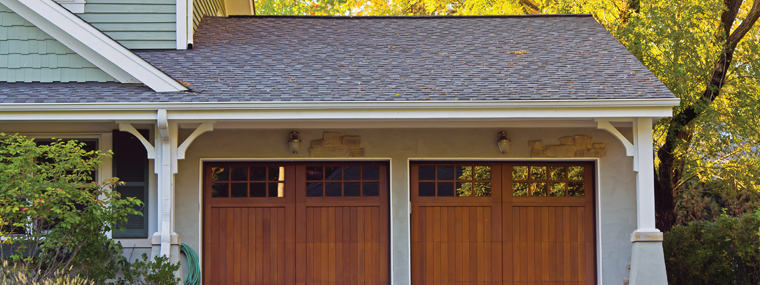
Good Business Judgment
An Oxymoron For Associations?
By Michael J. Gelfand, Esq. / Published December 2019

Typically, Florida community associations have a duty to properly evaluate an owner’s request for an alteration to the exterior of a home and issue an approval or disapproval for the proposed alteration. What is the test or standard which the board of directors is held to when performing this evaluation? What if the owner exceeds the parameters of an approval without seeking a new approval? Can a neighbor complain? Can a board of directors approve construction after the fact?
A Florida appellate court recently addressed a Florida homeowners association’s exercise of “business judgment” when approving an alteration. The facts in Miller v. Homeland Property Owners Association Inc., 44 Fla. L. Weekly D 1972 (Fla. 4th DCA, July 31, 2019), indicate that a Homeland community lot owner obtained association approval to build a garage but built the garage somewhat differently.
Over one year later after construction, the association discovered that the garage differed from the approved plans and required the owner to submit new plans. Relying on the statements of compliance from the owner’s engineering and construction firm as well as receiving advice from the association’s legal counsel, the association approved the garage as constructed.
Another owner in the community then sued both the owner who built the garage and the association, claiming that the association did not properly enforce the association’s architectural review requirements regarding height and roof restrictions. The trial court heard the neighbor’s claim and found that the association’s alteration enforcement decisions were protected by the “business judgment rule” and granted partial summary judgment against the complaining neighbor and in favor of the association and the directors.
The Florida appellate court agreed with the decision of the trial court, explaining that the purpose of the business judgment rule is to “evaluate the management decisions of property associations and to avoid second-guessing those decisions.” To help guide Florida community associations, the court outlined the test for applying the business judgment rule:
- Whether the association had the contractual or statutory authority to perform the relevant acts; and,
- If so, whether the board acted reasonably.
The court explained that deference is to be provided to actions that are reasonable, not those that are arbitrary, capricious, or in bad faith! Further, context is important when applying the business judgment rule. The court must look to the circumstances at the time of the association’s decision, not at the time of the litigation years later. “Appellant’s long after-the-fact challenge to the garage’s compliance with the restrictions, through the use of an expert who simply expressed a different opinion, cannot upend the board’s decision to approve [the] garage.”
This appellate decision is important because it illustrates how the business judgment rule applies to association board of directors’ decisions. Once an association provides a rationale for its decision, the challenging property owner must prove the owner’s case by specific facts or demonstrate unreasonableness for the association’s decision. Here, the challenging property owner did not offer evidence supporting his allegations of improper influence.
The lesson to be learned is to properly document important board decisions that may come back to bite you!
Workers’ Compensation Claim: Contract Details Lead to Injury Liability
What happens when a worker hired by an association injures another? Will the association be held liable? It may depend on how the contract with the company that employed the worker is worded.
A Florida appellate court recently addressed this issue in a case where Lennar Homes was developing a tract of land. In Heredia v. John Beach & Associates, 44 Fla. L. Weekly D 1892 (Fla. 2nd DCA, July 24, 2019), Lennar Homes hired QGS Development to perform road work in a subdivision. Lennar also hired John Beach & Associates to perform surveying work.
Heredia, working at the site for QGS, was cleaning dirt from a road. Gross, an employee of John Beach, while driving a John Beach-owned truck backed into Heredia. Heredia sued John Beach and Gross, alleging Gross negligently backed into him. John Beach and Gross argued that as Lennar’s subcontractors the negligence claim was barred under the Workers’ Compensation Law. The trial court granted judgment for the defendants.
The Florida appellate court disagreed and reversed the decision of the trial court. The court noted that the Workers’ Compensation Law, Section 440.10(1)(b), Fla. Stat. (2017), provides for “horizontal immunity,” meaning:
In case a contractor sublets any part or parts of his or her contract work to a subcontractor or subcontractors, all of the employees of such contractor and subcontractor or subcontractors engaged on such contract work shall be deemed to be employed in one and the same business or establishment, and the contractor shall be liable for, and shall secure, the payment of compensation to all such employees, except to employees of a subcontractor who has secured such payment.
The appeal turned on whether Lennar, the owner, was a “contractor” that “sublet part or parts” of its “contract work to a subcontractor or subcontractors.” The court determined that judgment for the defendants was inappropriate because there was no evidence that Lennar was performing the work on behalf of anyone other than itself. Therefore, the case would have to proceed to trial and Lennar would potentially be held liable.
Associations often hire workers and subcontractors. To help shield an association from potential liability when a worker is injured, it is important to confirm that there is proper workers’ compensation coverage and to have association counsel review contracts before they are signed, usually even before bidding starts—not just after the injury when it is too late!
Michael J. Gelfand, Esq.
Senior Partner, Gelfand & Arpe, P.A.
Michael J. Gelfand, Esq., the Senior Partner of Gelfand & Arpe, P.A., emphasizes a community association law practice, counseling associations and owners how to set legitimate goals and effectively achieve those goals. Gelfand is a dual Florida Bar Board Certified lawyer in Condominium and Planned Development Law and in Real Estate Law, Certified Circuit and County Civil Court Mediator, Homeowners Association Mediator, an Arbitrator, and Parliamentarian. He is a past Chair of the Real Property Division of the Florida Bar’s Real Property, Probate & Trust Law Section, and a Fellow of the American College of Real Estate Lawyers. Contact him at ga@gelfandarpe.com or (561) 655-6224.




